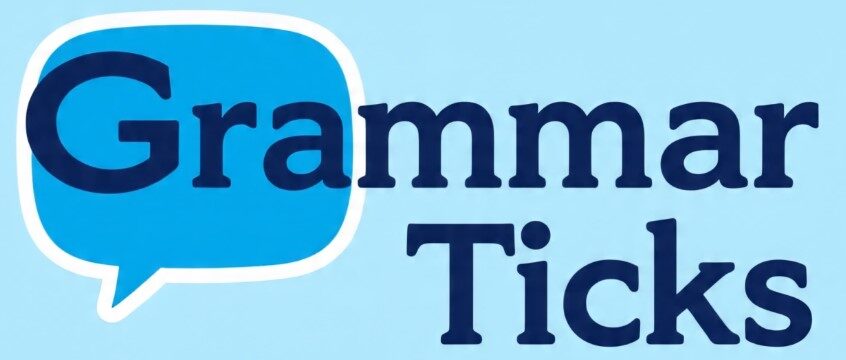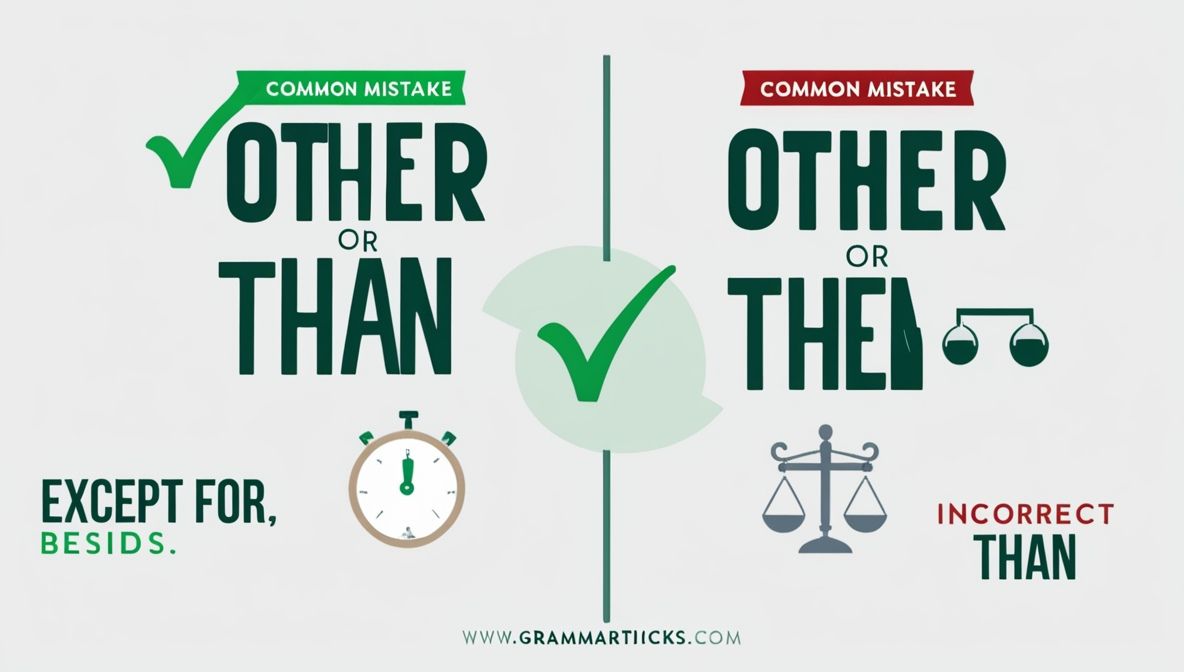When it comes to writing clearly, mixing up Other Than or Other Then ranks among the most common English grammar mistakes. These two phrases sound alike but serve very different purposes. Understanding the difference between than and then is crucial to avoid confusion and keep your writing sharp. Many people fall into this trap because of typographical errors in English and the tricky nature of comparison vs time words.
If you want to master the correct phrase usage and steer clear of the grammar mistake other then, you need to know when to use each phrase. This article will explain the other than meaning, clarify the other then meaning, and provide practical tips to fix this frequent slip-up.
Understanding Other Than and Other Then
The phrase other than functions primarily as a preposition to indicate exclusion or exception. For example, “I don’t eat any fruit other than apples,” means apples are the only fruit you do eat. On the other hand, other then is almost always a grammar mistake or typographical error because “then” relates to time or sequence, not comparison or exception.
People often mix these up because than and then sound alike but serve very different roles in sentences. Recognizing the difference between than and then helps prevent confusion, especially in phrases like these.
What Does Other Than Mean
Other than means except for or besides. It introduces something excluded from a general statement or lists an exception. You can think of it as similar to phrases like aside from or excluding.
Example:
- “No one showed up other than John.”
- “She likes all animals other than snakes.”
In both cases, other than highlights an exception to the statement.
Why Other Then Is Incorrect
The phrase other then is not standard English. The word then deals with time or sequence, as in “I will eat, then leave.” So placing then after other doesn’t make grammatical sense because you’re not talking about time.
Incorrect:
- “I have no friends other then him.”
Correct:
- “I have no friends other than him.”
Other then appears mostly due to typographical errors or confusion over the similar sound. It’s important to remember that other then is a common grammar mistake other then correct usage.
Other Than vs Other Then in Sentences
| Phrase | Correct Usage | Example | Incorrect Usage | Example |
| Other than | Use to exclude or indicate exception | “He likes all sports other than soccer.” | Use of “then” as a substitute for “than” | “He likes all sports other then soccer.” (wrong) |
| Other then | Not correct as a phrase | N/A | Misuse as a phrase | “I went to the store, other then home.” (wrong) |
Using Other Than That vs Other Then That
The phrase other than that is commonly used to mean “except for that” or “besides that.” It acts as a transition or clarification in conversations or writing.
Example:
- “The movie was boring; other than that, it was okay.”
On the flip side, other then that is never correct. It incorrectly replaces than with then, confusing meaning and disrupting sentence flow.
Tips to Avoid Confusing Other Than and Other Then
- Remember the role of “then” — it’s always about time or order. If your sentence doesn’t refer to time, don’t use then.
- Think of “than” as a comparison or exception word. If you mean to exclude or compare, “than” is the right choice.
- Proofread with a focus on these words. Use tools or read your writing aloud to catch mistakes.
- Use simple synonyms to test meaning — replace other than with except for or besides to check if the sentence still makes sense.
Scenario Examples to Clarify Usage
- Correct: “Everyone arrived on time other than Mark.” (Excludes Mark)
- Incorrect: “Everyone arrived on time other then Mark.” (Misuses then)
- Correct: “I have no plans today other than working.” (Except working)
- Incorrect: “I have no plans today other then working.” (Wrong word)
- Correct: “She didn’t call, other than that, everything was fine.”
- Incorrect: “She didn’t call, other then that, everything was fine.”
Common Synonyms for Other Than
If you want to avoid confusion, use synonyms that carry similar meaning:
- Except for
- Besides
- Aside from
- Excluding
These phrases can replace other than without changing the meaning and are less likely to be mixed up with then.
Frequently Asked Questions
No. The phrase other then is always a mistake. Use other than for exceptions.
Because than and then sound similar, and typing errors are common in informal writing.
Yes, it means “except for that” or “besides that” and is widely accepted.
Final Words
In conclusion, knowing the difference between Other Than or Other Then helps you write better. Other than is the correct phrase to use when showing exceptions or comparisons. On the other hand, other then is almost always wrong because then relates to time, not comparison. Keep this simple rule in mind to avoid common writing mistakes. When you proofread, watch out for this mix-up. With a little practice, you’ll never confuse these again. Writing clearly becomes easier when you use the right words every time.

